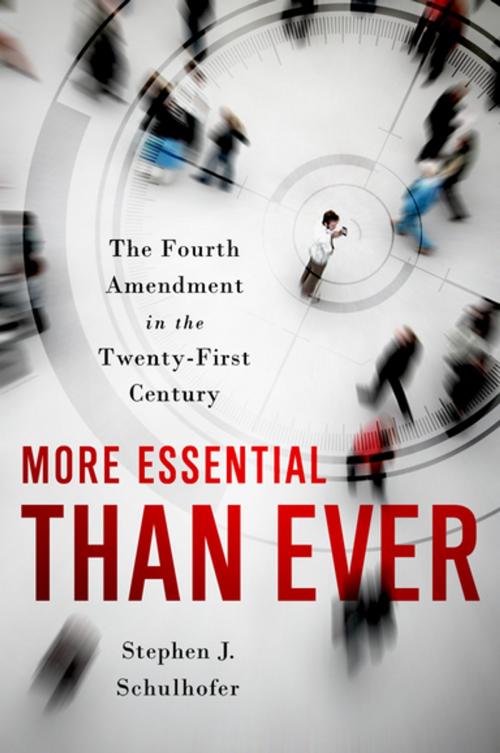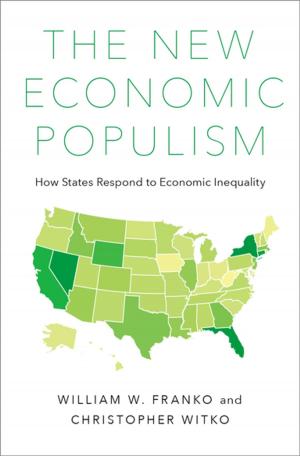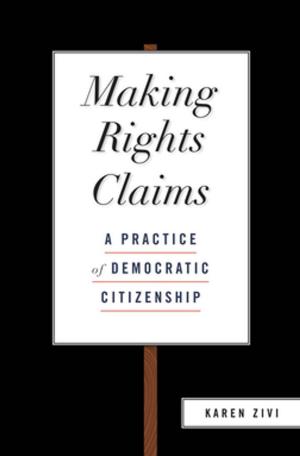More Essential than Ever
The Fourth Amendment in the Twenty First Century
Nonfiction, Reference & Language, Law, Civil Rights, Constitutional, Social & Cultural Studies, Political Science| Author: | Stephen J. Schulhofer | ISBN: | 9780199752997 |
| Publisher: | Oxford University Press | Publication: | July 9, 2012 |
| Imprint: | Oxford University Press | Language: | English |
| Author: | Stephen J. Schulhofer |
| ISBN: | 9780199752997 |
| Publisher: | Oxford University Press |
| Publication: | July 9, 2012 |
| Imprint: | Oxford University Press |
| Language: | English |
When the states ratified the Bill of Rights in the eighteenth century, the Fourth Amendment seemed straightforward. It requires that government respect the right of citizens to be "secure in their persons, houses, papers, and effects, against unreasonable searches and seizures." Of course, "papers and effects" are now digital and thus more vulnerable to government spying. But the biggest threat may be our own weakening resolve to preserve our privacy. In this potent new volume in Oxford's Inalienable Rights series, legal expert Stephen J. Schulhofer argues that the Fourth Amendment remains, as the title says, more essential than ever. From data-mining to airport body scans, drug testing and aggressive police patrolling on the streets, privacy is under assault as never before--and we're simply getting used to it. But the trend is threatening the pillars of democracy itself, Schulhofer maintains. "Government surveillance may not worry the average citizen who reads best-selling books, practices a widely accepted religion, and adheres to middle-of-the-road political views," he writes. But surveillance weighs on minorities, dissenters, and unorthodox thinkers, "chilling their freedom to read what they choose, to say what they think, and to associate with others who are like-minded." All of us are affected, he adds. "When unrestricted search and surveillance powers chill speech and religion, inhibit gossip and dampen creativity, they undermine politics and impoverish social life for everyone." Schulhofer offers a rich account of the history and nuances of Fourth Amendment protections, as he examines such issues as street stops, racial profiling, electronic surveillance, data aggregation, and the demands of national security. The Fourth Amendment, he reminds us, explicitly authorizes invasions of privacy--but it requires justification and accountability, requirements that reconcile public safety with liberty. Combining a detailed knowledge of specific cases with a deep grasp of Constitutional law, More Essential than Ever offers a sophisticated and thoughtful perspective on this important debate.
When the states ratified the Bill of Rights in the eighteenth century, the Fourth Amendment seemed straightforward. It requires that government respect the right of citizens to be "secure in their persons, houses, papers, and effects, against unreasonable searches and seizures." Of course, "papers and effects" are now digital and thus more vulnerable to government spying. But the biggest threat may be our own weakening resolve to preserve our privacy. In this potent new volume in Oxford's Inalienable Rights series, legal expert Stephen J. Schulhofer argues that the Fourth Amendment remains, as the title says, more essential than ever. From data-mining to airport body scans, drug testing and aggressive police patrolling on the streets, privacy is under assault as never before--and we're simply getting used to it. But the trend is threatening the pillars of democracy itself, Schulhofer maintains. "Government surveillance may not worry the average citizen who reads best-selling books, practices a widely accepted religion, and adheres to middle-of-the-road political views," he writes. But surveillance weighs on minorities, dissenters, and unorthodox thinkers, "chilling their freedom to read what they choose, to say what they think, and to associate with others who are like-minded." All of us are affected, he adds. "When unrestricted search and surveillance powers chill speech and religion, inhibit gossip and dampen creativity, they undermine politics and impoverish social life for everyone." Schulhofer offers a rich account of the history and nuances of Fourth Amendment protections, as he examines such issues as street stops, racial profiling, electronic surveillance, data aggregation, and the demands of national security. The Fourth Amendment, he reminds us, explicitly authorizes invasions of privacy--but it requires justification and accountability, requirements that reconcile public safety with liberty. Combining a detailed knowledge of specific cases with a deep grasp of Constitutional law, More Essential than Ever offers a sophisticated and thoughtful perspective on this important debate.















